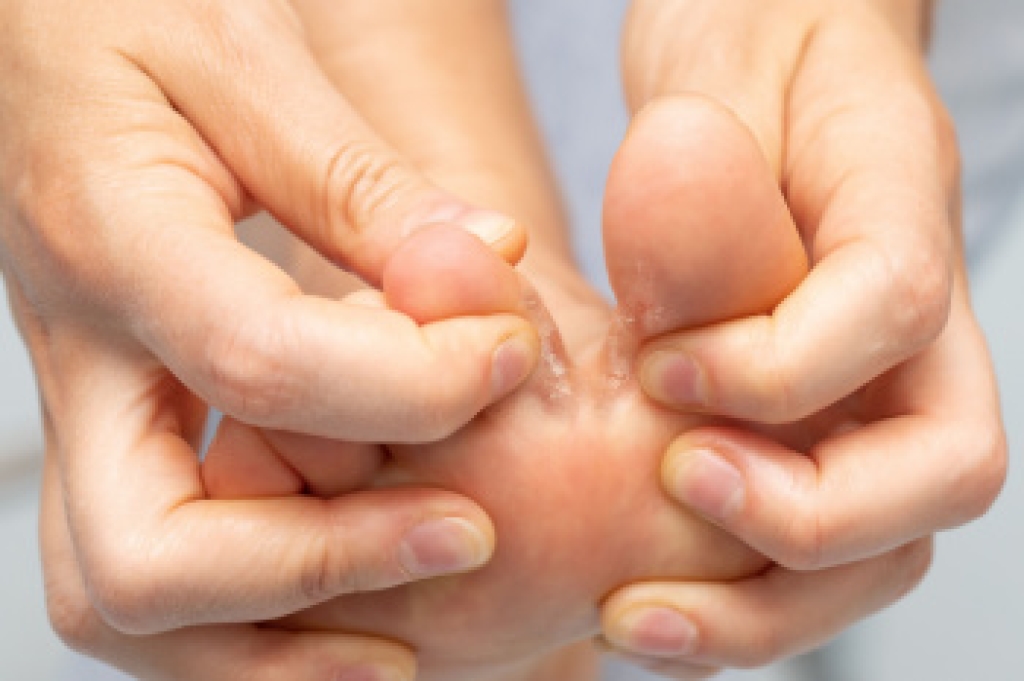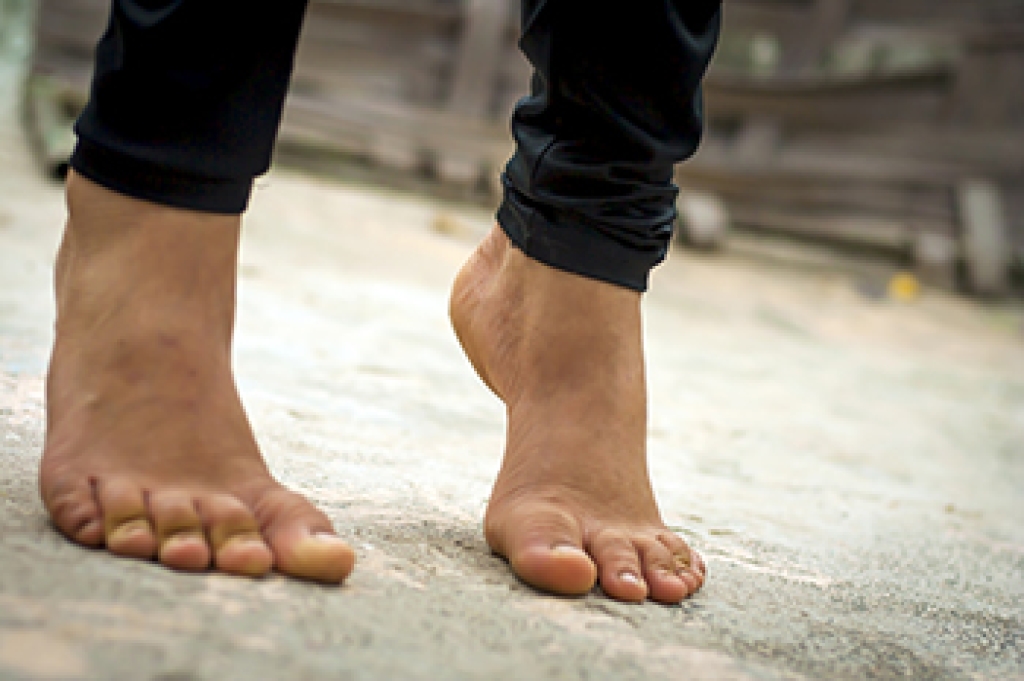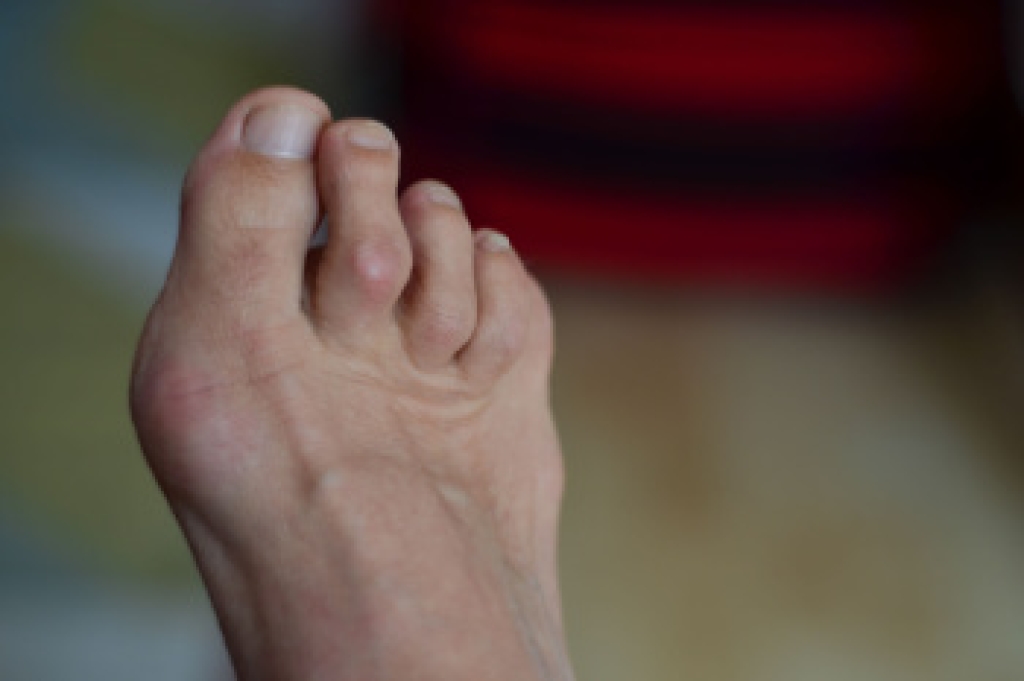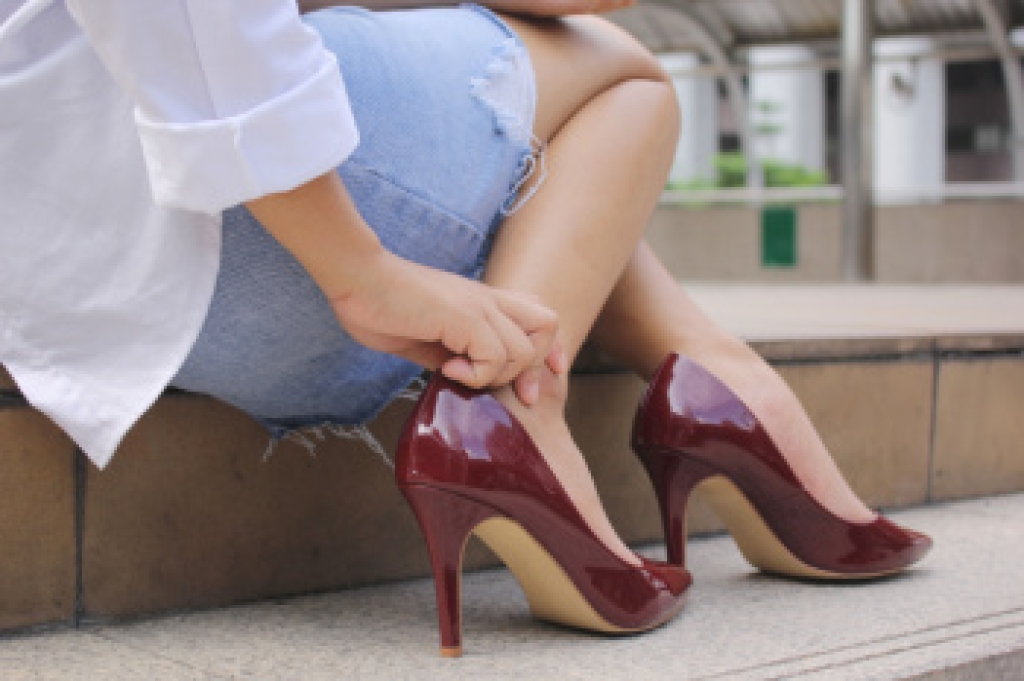
Athlete’s foot is a fungal infection that affects the skin on the feet. It is often caused by exposure to fungi found in warm, moist environments, such as public showers, locker rooms, or sweaty shoes. It may look like red, scaly patches, peeling skin, or small blisters, often appearing between the toes or on the soles of the feet. Many individuals experience itching, burning, or stinging sensations, and in severe cases the skin may crack or bleed, increasing the risk of a secondary infection. Athlete’s foot is highly contagious and can spread to other parts of the body or to other individuals through direct contact or shared surfaces. A podiatrist can help by examining the affected areas to confirm the diagnosis and rule out other skin conditions. Treatment may include topical or oral antifungal medications, proper foot hygiene, and advice on footwear to reduce moisture and prevent recurrence. Early intervention relieves discomfort and helps stop the spread of infection. If you notice persistent itching, redness, or peeling on your feet, it is suggested that you make an appointment with a podiatrist.
Athlete’s Foot
Athlete’s foot is often an uncomfortable condition to experience. Thankfully, podiatrists specialize in treating athlete’s foot and offer the best treatment options. If you have any questions about athlete’s foot, consult with Mohammad R. Parsa, DPM from Madison Foot Clinic. our doctor will assess your condition and provide you with quality treatment.
What Is Athlete’s Foot?
Tinea pedis, more commonly known as athlete’s foot, is a non-serious and common fungal infection of the foot. Athlete’s foot is contagious and can be contracted by touching someone who has it or infected surfaces. The most common places contaminated by it are public showers, locker rooms, and swimming pools. Once contracted, it grows on feet that are left inside moist, dark, and warm shoes and socks.
Prevention
The most effective ways to prevent athlete’s foot include:
- Thoroughly washing and drying feet
- Avoid going barefoot in locker rooms and public showers
- Using shower shoes in public showers
- Wearing socks that allow the feet to breathe
- Changing socks and shoes frequently if you sweat a lot
Symptoms
Athlete’s foot initially occurs as a rash between the toes. However, if left undiagnosed, it can spread to the sides and bottom of the feet, toenails, and if touched by hand, the hands themselves. Symptoms include:
- Redness
- Burning
- Itching
- Scaly and peeling skin
Diagnosis and Treatment
Diagnosis is quick and easy. Skin samples will be taken and either viewed under a microscope or sent to a lab for testing. Sometimes, a podiatrist can diagnose it based on simply looking at it. Once confirmed, treatment options include oral and topical antifungal medications.
If you have any questions, please feel free to contact our office located in Madison, MS . We offer the newest diagnostic and treatment technologies for all your foot care needs.




